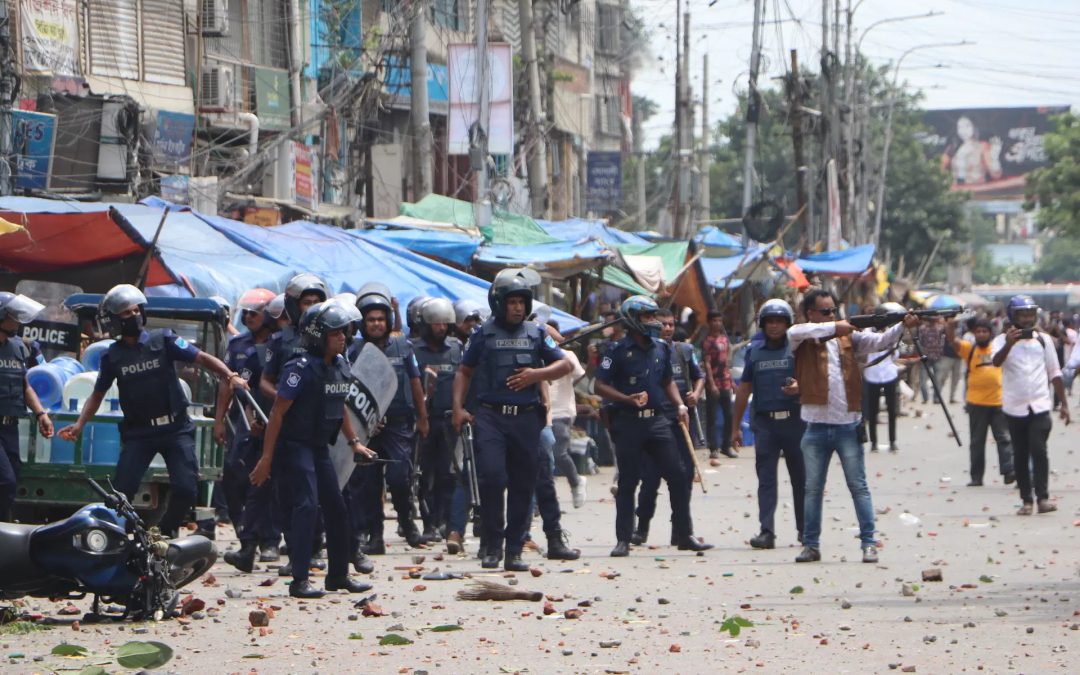Some BNP leaders and activists got into a fight with the police before the BNP founding anniversary parade began in Narayanganj. More than fifty people, including children and passersby, were hurt on both sides. In the city’s No. 2 Railgate area on September 01, 2022, Thursday around 11:30 a.m.|Photo by Dinar Mahmood
In the face of a mounting political crisis, a storm of protests and condemnation has erupted across Bangladesh. Opposition leaders and activists accuse the government of using brute force to maintain its grip on power, following violent clashes that left a trail of bloodshed and despair. As reports of police shootings and casualties surfaced, three prominent left-leaning organizations issued impassioned statements denouncing what they called an attack on democracy itself.
A Nation at a Crossroads
On BNP’s 44th founding anniversary, celebrations turned tragic in Narayanganj. Law enforcement opened fire during a peaceful demonstration, resulting in the death of a youth activist, Shaon Pradhan. Dozens of others, including pedestrians and police officers, suffered injuries amidst the chaos of baton charges and brick-throwing skirmishes. These incidents, mirrored in districts like Netrokona, Sirajganj, and Manikganj, sparked outrage nationwide.
Unified Condemnation from the Left
The Left Democratic Alliance and allied groups, including the Mass Solidarity Movement and People’s Rights Council, were quick to respond. In a series of strongly worded statements, they condemned the government’s actions, accusing it of weaponizing state institutions to crush dissent. The alliance called for immediate resistance against what they termed “authoritarian behavior,” urging citizens to reclaim their democratic rights.
The Role of State Machinery
Criticism extended beyond the police. The People’s Rights Council alleged active involvement of Awami League factions in attacks against BNP workers, intensifying the perception of a coordinated effort to suppress opposition voices. By aligning law enforcement with partisan interests, the government, they argued, has revealed a troubling tilt toward authoritarianism.
A Tipping Point for Democracy?
The broader context of these clashes paints a grim picture of Bangladesh’s political climate. Over the years, increasing polarization and mistrust between parties have turned democratic institutions into battlegrounds. The crackdown on BNP’s anniversary program is seen as a symptom of deeper dysfunction—a system that prioritizes power over progress.
Lessons from History
Bangladesh’s struggle for democracy has always been fraught with challenges. From its independence to the present, the nation has faced periods of hope punctuated by political unrest. The recent violence is a stark reminder of the delicate balance required to sustain freedom and justice in a nation striving for stability.
A Call for Change
The time for introspection is now. As citizens grapple with the fallout of these events, one question looms large: Is this the democracy they fought for? It is imperative for political leaders, activists, and the global community to advocate for dialogue and accountability. For Bangladesh to truly move forward, it must reject violence and recommit to the ideals that inspired its independence.

